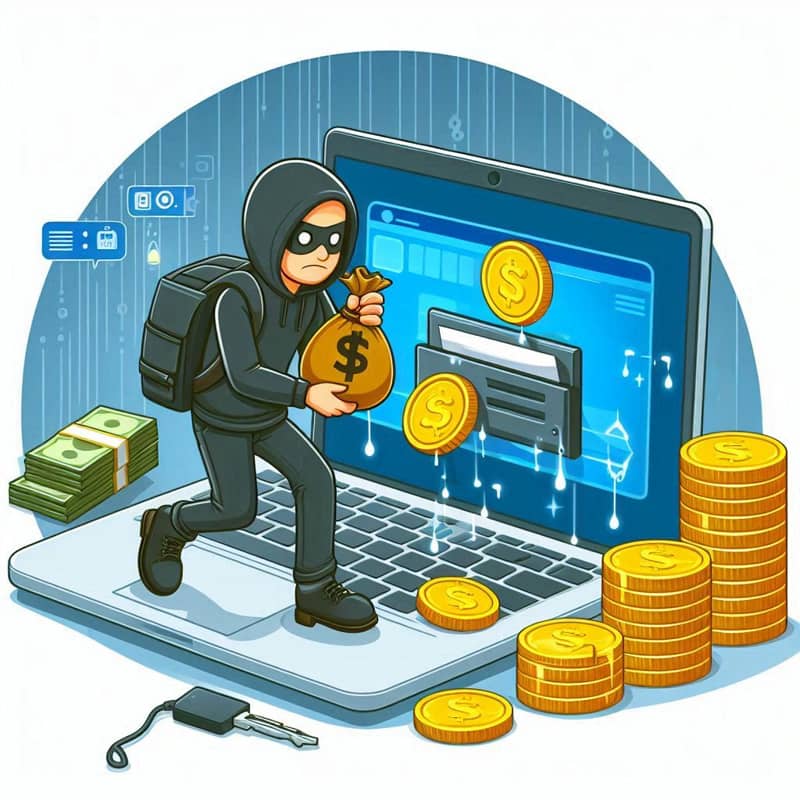As far back as history has been recorded, we have been using cash as it is a most convenient and private form of money. Thus, since we are advancing into a more digitized society, is it not time for us to embrace a form of digital cash that is equivalent to paper cash?
Using cash actually presents many benefits in comparison to digital wallets and credit cards. Some of these benefits include:
- Personal Freedom:
You can spend your money as you wish without being tracked by banks and authorities. - Security:
Unlike digital payments, cash transactions don’t expose your personal data to hackers, banks or corporations. - Financial Inclusion:
Anyone, regardless of their social status or access to banking can use cash.
However, it seems like cash is slowly disappearing in the digital age. How many of us actually realize that we are giving up our personal freedom when we stop using cash?
Governments and corporations are pushing for a cashless society because it allows them to track and monitor transactions. For now, most people seem to be happy with using digital money controlled by the government. However, what if the authorities begin to subtlety dictate who gets to use digital money or how it can be used?
This is where Bitcoin can be a peer-to-peer digital cash that grants freedom to the people in the digital realm. Many people, including crypto enthusiasts and finance experts believe that Bitcoin holds the potential to become the digital equivalent of cash.
But can Bitcoin truly function as a global digital cash system? Let’s explore its potentials and the roadblocks it faces in this post.
Why Bitcoin Could Be the Ideal Digital Cash
In 2009, an anonymous creator known as Satoshi Nakamoto created Bitcoin in response to the 2008 financial crisis. That event by itself proves that traditional financial markets controlled by the governments and banks are far from ideal.
Even though Bitcoin is a relatively new innovation, it offers several significant features that make it an attractive alternative to cash:
- Decentralization:
Although big players known as ‘whales’ can manipulate the price of Bitcoin, no single government or central bank can control Bitcoin. This features makes it resistant to censorship. - Borderless Transactions:
You can send Bitcoin anywhere in the world without needing a middleman. This means no one can question or stop you from sending or receiving Bitcoin, even across international borders. - Deflationary Effect:
Bitcoin has a fixed supply of 21 million coins, which mimics the limited supply of gold. As its value increases with demand, it’s possible to reverse the dreadful impact of price inflation. - Privacy Potential:
Bitcoin allows you to preserve a degree of anonymity unlike conventional digital money monitored by the bank and government. Although anyone can view the transactions associated with your Bitcoin crypto wallet address, the viewer would not know you are the owner of the address.


Can Bitcoin Become Digital Cash?
Challenges Bitcoin Faces in Becoming Digital Cash
Before Bitcoin can truly become a form of useable digital cash though, it will need to jump over several obstacles. Some of these hurdles are:
- Scalability Issues:
One of the major barriers that hinder Bitcoin from reaching digital cash status is its slow transaction speed. The Bitcoin blockchain can only process about a handful of transactions per second, a far cry from Visa’s network which can process thousands of transactions per second. The Lightning Network promises to significantly speed up Bitcoin transactions but the system is still far from mass adoption. - Government Regulations and Crackdowns:
In general, governments dislike financial systems that they cannot control. Even in countries where trading of Bitcoin is legal, authorities impose strict anti-money laundering (AML) and know-your-customer (KYC) laws on cryptocurrency exchanges. Therefore, looking at the current regulatory strictness, Bitcoin has quite a difficult road ahead if it is to become a digital cash system. - Price Volatility:
Many people often cite the volatile price of Bitcoin as a legitimate reason for its inability to serve as a currency for everyday purchases. For now, most people would prefer to hold it as an investment rather than spend it like cash. - Merchant Adoption:
In order for Bitcoin to function as digital cash, governments must recognize the crypto as legal tender. At this point of time, only a trickle of companies accept Bitcoin as a form of payment. - Lack of Knowledge:
Most laymen still do not understand the fundamentals of crypto and Bitcoin. People will avoid Bitcoin as long as they regard it as a novelty rather than a commodity.
Market Forces That Could Shape Bitcoin’s Future
So, do you think Bitcoin will eventually cease to exist once the bubble burst? You might want to read my post about whether Web3 is just all hype.
Nevertheless, several factors could influence whether or not Bitcoin can become the world’s digital cash. For example:
- Stablecoins and CBDCs:
Governments and corporations are developing digital currencies that offer price stability. If any of the projects gain traction, they could certainly compete with Bitcoin in being used as digital cash. - Institutional Adoption:
We are seeing more businesses and financial institutions getting interested in Bitcoin and crypto in general. For example, there is a bit of hype now surrounding XRP. If more major players get into Bitcoin or other crypto, it will obviously increase the likelihood of Bitcoin evolving into digital cash. - Technological Improvements:
We must never forget that the Lightning Network still holds potential to be a viable real world payment system for Bitcoin. With time, we can expect the developers to improve on making Bitcoin faster and more efficient. After all, most people ignore the early versions of the Internet until social networking sites like Facebook burst into the mainstream.
The price of Bitcoin had reached above above $100,000! Are you missing out on opportunities because you lack cryptocurrency knowledge?
You can enrol in free Bitcoin and cryptocurrency online courses with Alison. You only pay if you need the certificate and I may get a commission as an affiliate.
Conclusion
Bitcoin has the potential to be the world’s digital cash, but it’s definitely not there yet. Scalability issues, regulatory pressure, and price volatility remain major obstacles. In order for Bitcoin to be adopted alongside cash, it would need to transact faster on the blockchain and broader market acceptance must be present.
If developers, businesses, and users persist in pushing for improvements and economic transformation, we as the people could very well be on the way to having our own digital cash that cannot be controlled by government or any other authorities.
Do you think we will see that day?





